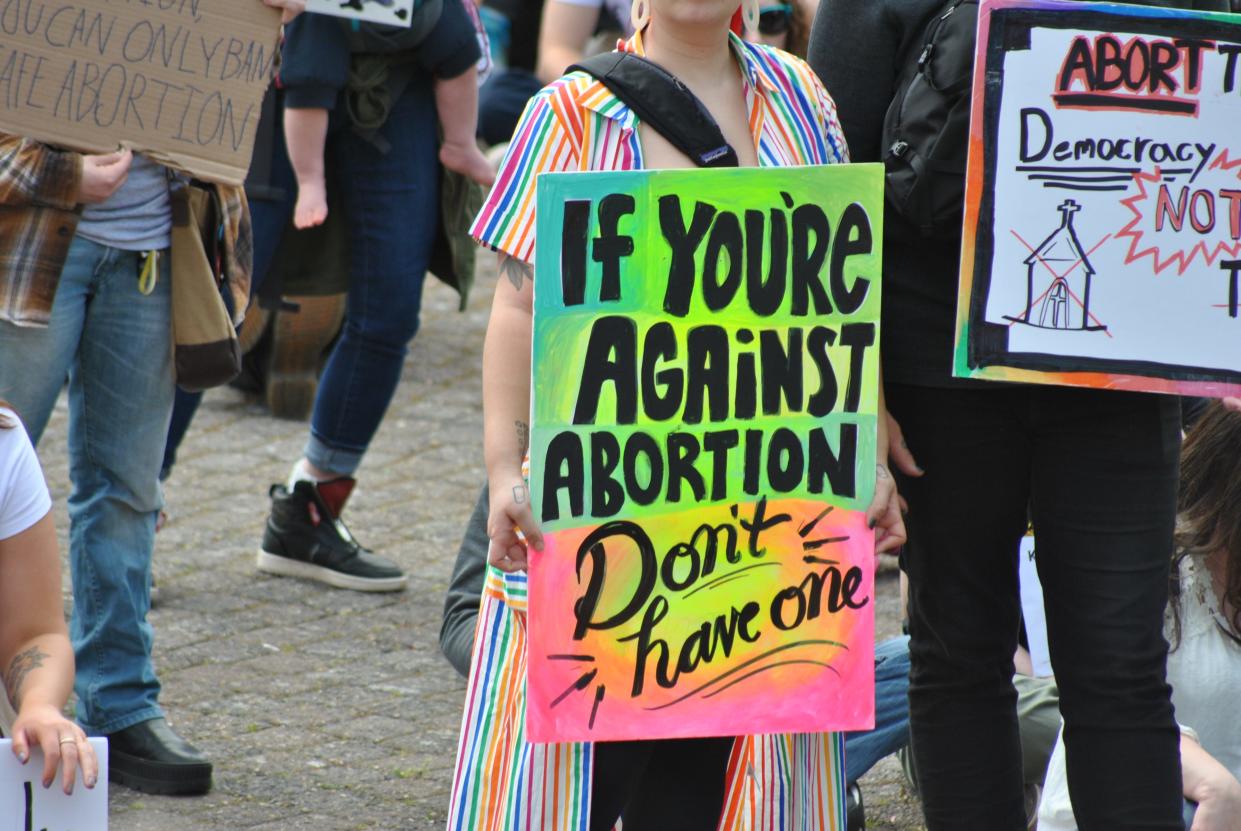Roe is about privacy and bodily autonomy

- Oops!Something went wrong.Please try again later.
Years ago, before coming out publicly as a trans man, I experienced a brief but intense fear that I might be pregnant.
I was terrified beyond words; I was not in a place in life where I could care for a child, and the circumstances surrounding the possibility of pregnancy were traumatic. My own body dysphoria compounded my panic and added revulsion. The very concept of my body as pregnant filled me with abject horror. I experienced crippling, overwhelming, existential dread so far outside my understanding of self that it was incomprehensible. I’m simply not skilled enough a writer to articulate the ineffable disconnect I felt with my own body.
Thankfully, the option of abortion for me was legal and unnecessary. After the recent SCOTUS Dobbs opinion leak revealing the presumably imminent reversal of Roe v. Wade, many women, trans men and nonbinary folk will not be so fortunate. The dangers posed to pregnant individuals when they lose access to safe, legal abortion can be devastating. Trans men and nonbinary individuals — often unseen in this discussion — experience disproportionate harm. When we talk about the terrible consequences of overturning Roe, we must remember it jeopardizes more than just the right to abortion.
The draft’s narrow framing of privacy potentially threatens gender-affirming health care, same-sex marriage and even the legality of intimate acts between consenting partners. In the draft, Justice Samuel Alito attempts to narrow the rhetoric to just Roe v. Wade, but LGBTQ legal watchdogs draw little comfort from it. The Dobbs draft erases bodily autonomy for pregnant women and trans men/nonbinary individuals because such privacy is, in Alito’s words, not “deeply rooted in this Nation’s history and tradition” — a terrifying phrasing for any marginalized population in the United States.
For trans men and nonbinary individuals, access to health care already is fraught. In 2022, more than 300 anti-trans laws have been introduced in the U.S., and the attacks grow increasingly virulent. Missouri, for instance, recently introduced HB 2649 to criminalize gender-affirming health care for anyone younger than 25 (remember, one can sign up for military service and vote at 18). Such invasive policing of trans bodies supposedly "protects" children and posits gender-affirming health care as immoral. This strategy should seem familiar: "Protect the innocent” moral affectation mimics long standing anti-abortion rhetoric. We are seeing the repercussions of said strategies now in the Dobbs draft.
Places that provide abortion and reproductive health care services such as Planned Parenthood often offer gender-affirming health care. For many trans people, such places are frequently the only sources of such medical care they have. If a location shuts down, then physical access to health care for the trans community — already under dire threat — becomes even more precarious.
Forcing any human capable of bearing a child to do so is an invasive and violent act. The same can be said for forcing trans bodies to live without gender-affirming health care. Bodily autonomy and the right to privacy — particularly for historically oppressed populations — may not be a "deeply rooted tradition" in this country, but that is not an admirable or honorable history to emulate.
We cannot allow unjust practices of the past to serve as justification for oppression, no matter how “deeply rooted” they are.
Ty Warren is a senior instructor at the University of Oregon and an active proponent for trans rights.
This article originally appeared on Register-Guard: Roe v. Wade is about privacy and bodily autonomy

